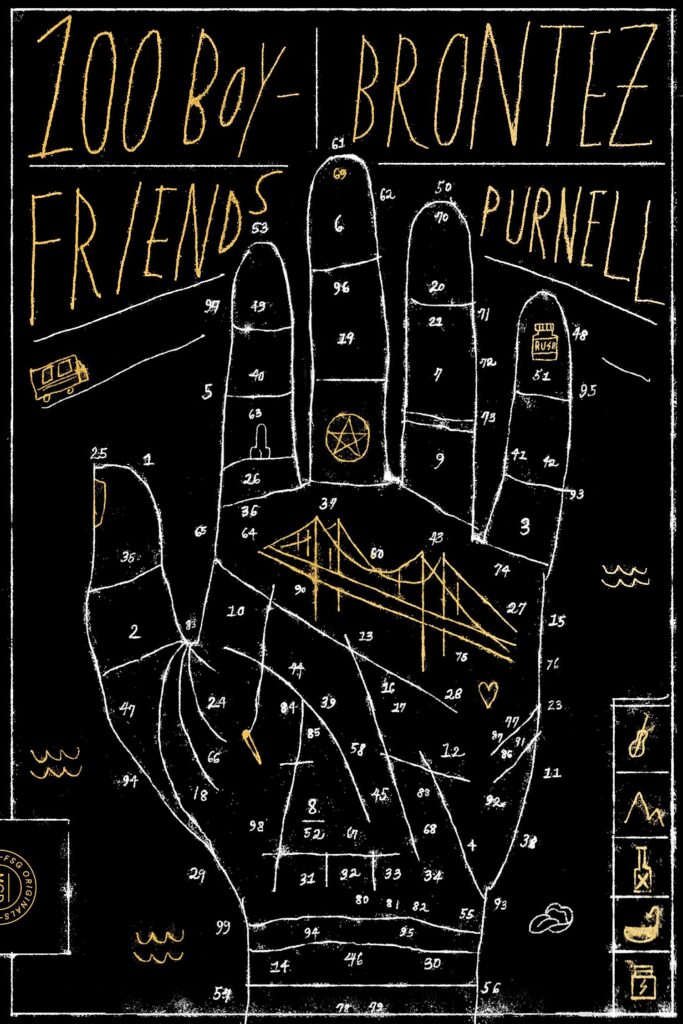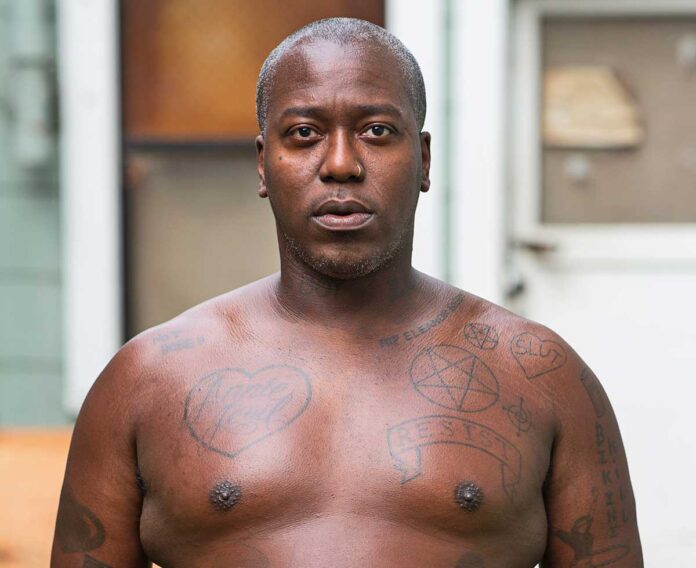It is perhaps impossible to count the exact number of boyfriends in Brontez Purnell’s “100 Boyfriends,” his dazzling collection of stories about gay Black men, because among the myriad of sexual encounters recounted within this slim volume, few of the men have stable relationships. Instead, readers will be sucked into each chapter by Purnell’s assured voice; he writes with attitude — and it is spellbinding.

There are some outstanding stories here. “Letter of Resignation,” depicts a man who is both secretly pleased and perhaps conflicted about sleeping with his coworker’s husband. This story delights and surprises as the protagonist recounts his feelings of shame at his bad behavior. Even better is “Ed’s Name Written in Pencil,” which concerns a 7½ year-old boy named Mickey, who is tormented by Cortex, a foul-breathed 11 year-old bully. When a new boy named Ed appears in his class, Mickey finds not just a possible new best friend, but also experiences the stirrings of same-sex attraction. Purnell’s tale is heartbreaking, and includes terrific lines like, “You could feel the charisma of [Mickey’s dad] six feet before he arrived.”
Some of the entries in “100 Boyfriends” can feel like doodles. Multiple chapters with variations on the titles “Boyfriend(s),” “Hooker Boys,” and “Meanderings,” that appear throughout the book recount various sexcapades, often graphically, and in a few pages or even a single paragraph. These vignettes, which include a hot secret tryst in an unfinished building and a man’s complicated relationship with a sex worker, are funny, exciting, sexy, and even occasionally weird (e.g., “Boyfriend #666”). But they can also sometimes be unsatisfying, because a few of them feel underdeveloped.
The book’s epilogue, about a guy and his band on a European tour, recounts an unending stream of sexual encounters, and while it is page-turning, it, like some of the stories that depict a barrage of sex, can also be numbing. This may be Purnell’s agenda, to desensitize readers. His descriptions of sexual activity are vivid and uncompromising throughout the book. However, his casual and candid approach to discussing and depicting sex is refreshing. While there are many accounts of the sex act, there are also phrases such as, “He inhaled me with vigor, indulgence…” that keeps the salacious, no-holds-barred writing from being sensational or purely pornographic.
Moreover, all the bored and horny characters are frequently on the receiving end of sex. Readers can draw their own conclusions whether these men prefer bottoming or have no option in the power dynamic at work in the relationship.
Purnell may be using all the promiscuous sex to make a grander point about Black gay men and their lack of self-esteem and dignity. In the first story, “In the Morning,” the main character acknowledges “I looked like boyfriend material…. But I knew I was an impostor underneath,” getting at the conflict that presents an outward facing confidence and an interior vulnerability. The book is full of such observations, but they have cumulative power, and it never feels repetitive.
In the story “Mountain Boys,” one character says, “He looks like a young Black man who respects himself. I love him for that because I personally couldn’t be bothered with all that at his age.” Another moving scene is featured in the story “Do They Exist If No One’s Watching?” has a man visiting an HIV counselor whose concern about her client’s contracting syphilis three times in one year prompts her to ask, “Have you ever considered having a boyfriend?” This question causes the man to cry “really loud and ugly.”
There are many scenes of self-reckoning in “100 Boyfriends,” which showcases characters at various stages in their lives. The tale, “Mr. Raleigh vs. the Gym,” mentions testosterone treatments, a sign that the title character, “wasn’t really making it anymore.” While taking a shower at the YMCA — during the California drought, no less — Mr. Raleigh recalls his fascination with a boy doll, “Mr. Buddy,” from his late childhood, as well as his failed relationships with two lovers from his past. As he towels off, a fit, slightly younger man with gray hair makes a pass at Mr. Raleigh, which leads to them having sex. The story is a poignant reflection on aging and self-worth. Purnell’s compact book is also very much about race, even if sexuality is at the forefront of the stories. Mr. Raleigh flashes on Natives being conquered, and other characters talk about skin color in political terms. The theme of privilege echoes soundly throughout “100 Boyfriends.”
But what comes across strongest in the more than two dozen stories is Purnell’s exacting voice. He speaks volumes about race, class, and sexuality here, and he does it eloquently, profanely, and powerfully — and often in just a handful of pages.
